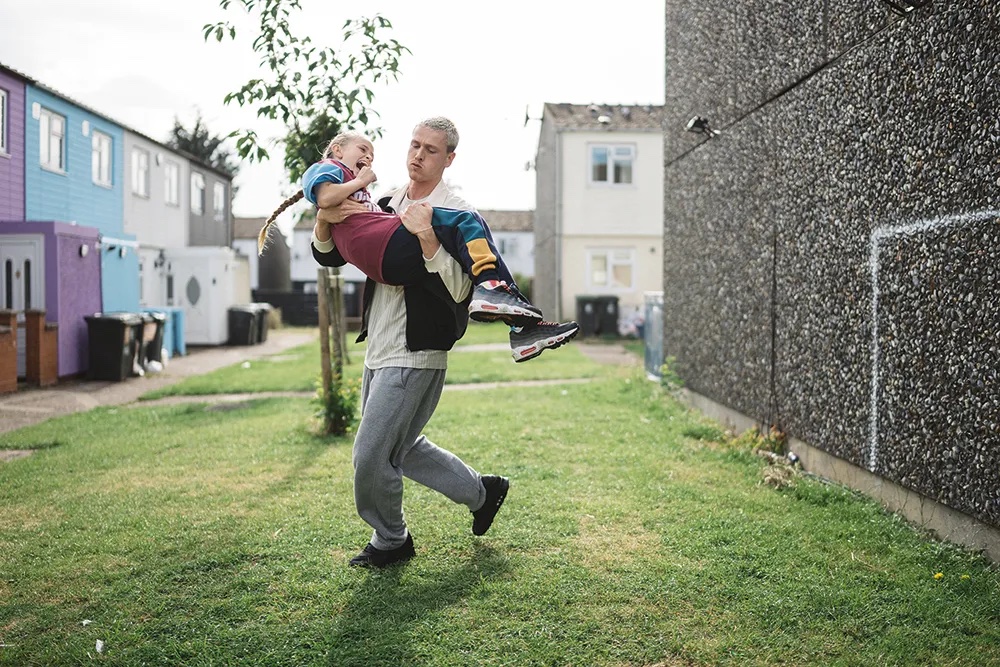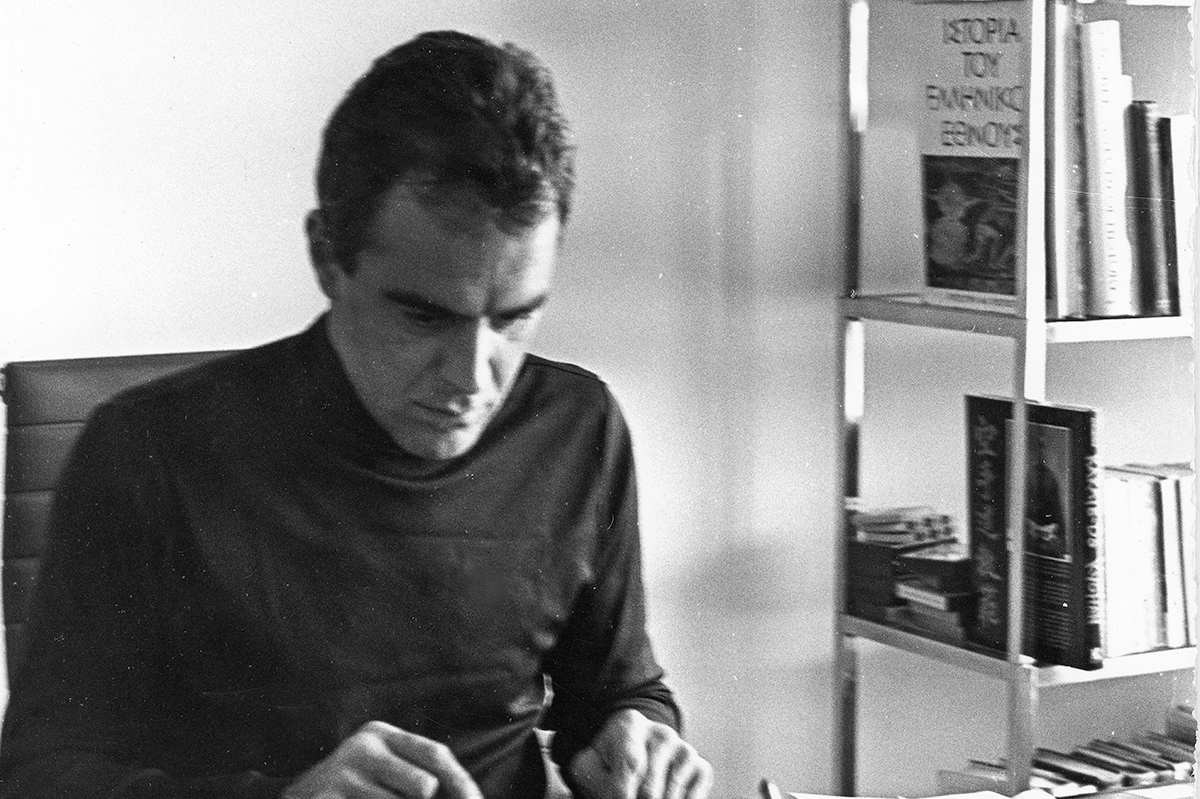Scrapper is a film about a working-class kid who, after her mother dies, has to look after herself. I know what you’re expecting. It isn’t that. It’s not an earnestly grim wrist-slitter. It’s not an indictment of modern Britain with no shred of hope. It’s not Ken Loach. It’s not even desaturated and grimy. Instead, it’s colorful, tender and sweet with quirky moments that are grounded in magical rather than social realism. And it’s just eighty-four minutes long, which is a boon. (“A boon,” confirms bladders everywhere.)
When child actors are rubbish I tend not to say anything as it’s like kicking puppies
This is the first feature from writer-director Charlotte Regan and the film sets out its stall at the off with an intertitle that reads: “It takes a village to raise a child” which is then crossed out, with a child’s handwriting saying: “I’ll raise myself, thanks.” Georgie (newcomer Lola Campbell) will raise herself, thanks. She is twelve, wears a West Ham United top, and lives on an estate where the council houses are as brightly colored as beach huts. She evades the authorities by saying she shares the property with an uncle, and social services are so uncaring they buy it even though said uncle is called “Winston Churchill.”
She keeps the house exactly as her mother had it. She pays the rent and earns money by stealing bikes with her best friend Ali (Alin Uzun, also a newcomer). She is determinedly independent — but who is this plopping over the back fence with a terrible hair-do? It’s her father, Jason, who had been living in Ibiza and has returned to make good. They’ve never met before. What follows is a story where the child teaches the adult how to parent. But as the film critic Roger Ebert once said: “It’s not what a movie is about, it’s how it is about it.” And this goes about it with, mostly, an assured yet light touch.
At first Georgie wants to drive her father away — but I don’t think it’s a spoiler to say they slowly open up to each other. He’ll discover what she’s been up to in the one room she keeps padlocked. (Can’t say what, but it does explain the title.) There are some genuinely touching and funny scenes which may involve the pair improvising a dance routine or Jason doing silly walks on the opposite side of the street to make Georgie laugh.
The magical elements include sudden cutaways to talking spiders or people breaking the fourth wall to comment on the action. I watched it with someone who thought that was the best thing about the film, whereas I thought it was the worst. It’s not a deal-breaker but it felt as if Regan was trying perhaps too hard to be offbeat.
The most magical aspect is, in fact, the performances. Harris Dickinson, the Leytonstone boy who’s a big deal in Hollywood now (you’ll know him from Triangle of Sadness and Where The Crawdads Sing), exudes a dozy vulnerability and perfectly captures the man who is immature but latently sincere. When child actors are rubbish, I tend to not say anything as it’s like kicking puppies and I do have a heart, but Campbell and Uzun are terrific: fresh, naturalistic, winning.
Scrapper doesn’t reinvent the wheel. Certain improbabilities mount. And grief is tackled simplistically. But the skies are often blue and no decent person ends up being broken by an indifferent system. And that, my friends, is also a boon.
This article was originally published in The Spectator’s UK magazine. Subscribe to the World edition here.





















